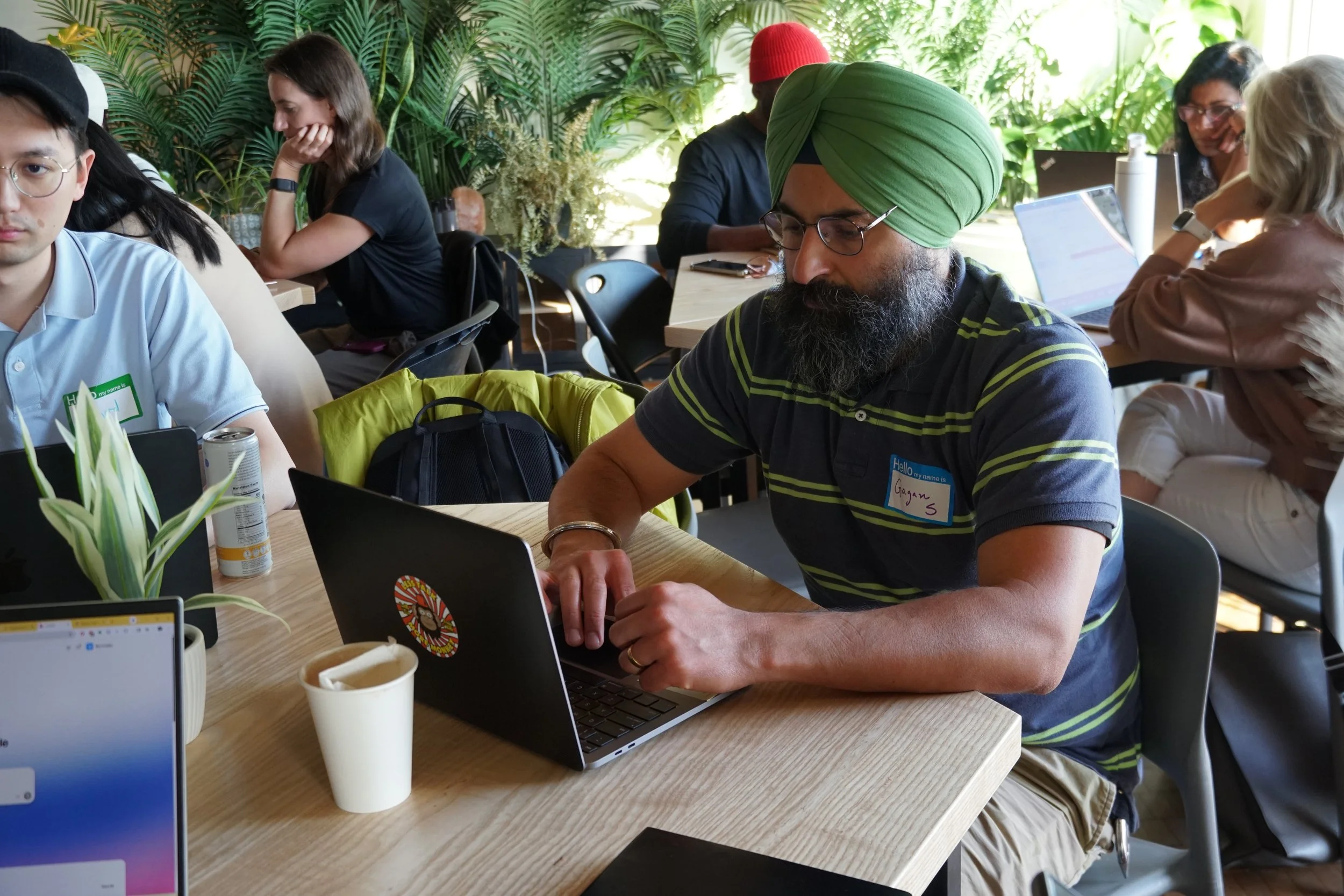Where Code Meets the Kitchen: Seattle’s Next Chapter of Food, Tech, and Soul
What happens when the people who code the systems sit down with the people who run them?
Monday, October 6, at AI House, we gathered founders, chefs, technologists, and operators to explore one simple question: What does it look like when artificial intelligence meets the reality of kitchens, service, and scale?
We built with code. We broke bread. And in between, we remembered why we do any of this — to connect.
The day began with hands-on creation: an AI Vibe Coding workshop led by Adam Burgh, where participants built their first AI-powered applications in under an hour. Projects ranged from Perfect Pairing to RecipeSnap to Seasonal Menu Generator — each one a small bridge between culinary imagination and operational possibility.
By evening, laptops closed and the conversations deepened.
Ryan Conti (Peasy) reframed the future of SaaS through a simple truth: great systems make work feel human again. Most growing brands don’t need more software; they need clarity, adaptability, and trust.
Lee Kindell (MOTO Pizza) shared how a 500-square-foot pandemic experiment became one of the fastest-growing concepts in the Northwest—proof that constraints breed creativity, and that staying weird long enough eventually makes sense.
Meng Wang (Artly AI) brought embodied AI to the table—robots that don’t just think, but move, see, and learn like we do. His message was clear: humanoids aren’t replacements; they’re reflections of human skill and design.
Maria Zhang (Palona) explored multimodal AI as a sensory, responsive collaborator. The future of hospitality isn’t just smart, it’s intuitive. Technology that feels like working with someone who already knows how you think.
Linda Milagros Violago closed the night by bringing us back to what no machine can replicate: presence, empathy, and the soul of service. After decades in fine dining across 13 countries, Linda reminded us that a perfect pour isn’t hospitality. Presence is.
That arc—from logic to empathy, from systems to soul—felt like the real story.
With deep gratitude to our speakers—Ryan, Lee, Meng, Maria, and Linda—for grounding the night in clarity and care.
To Shauna Causey for emceeing with warmth and energy; John King and Cameron Gould-Saltman for moderating with curiosity and humor; Elaine Chon-Baker for supporting this experience and making it extraordinary; Audrey Yun and the AI House team for opening such an inspiring space; and Adam Burgh for leading the Vibe Coding workshop and showing how accessible AI has become.
And to our sponsors—Corient, Databricks, CIBC Innovation Banking, GoodNow—and our incredible product partners including PAOW!, Sow Good, Hiyo, Oshi, Tatu Protein Water, Jones Soda, KACE, PeakaPop, Fast Penny Spirits, GO Nuts, Gut Nuts, Seattle Strong Coffee, G2G Protein Bar, BonBon, Vino FC, and inKind—thank you for believing in the power of collaboration and helping create a space where connection and innovation could thrive.
Hospitality will always be the test case for innovation. It’s where efficiency meets empathy; where technology learns to serve.
Let’s keep building from here—with nuance, courage, and care.
About Joann Jen
Joann Jen is the Co-Founder and CEO at Topi Ventures, a boutique venture studio dedicated to incubating sustainable CPG brands. With a career marked by successful brand leadership, a commitment to social equity, and a deep-seated belief in the power of innovation, Joann is a driving force in the global CPG landscape.









